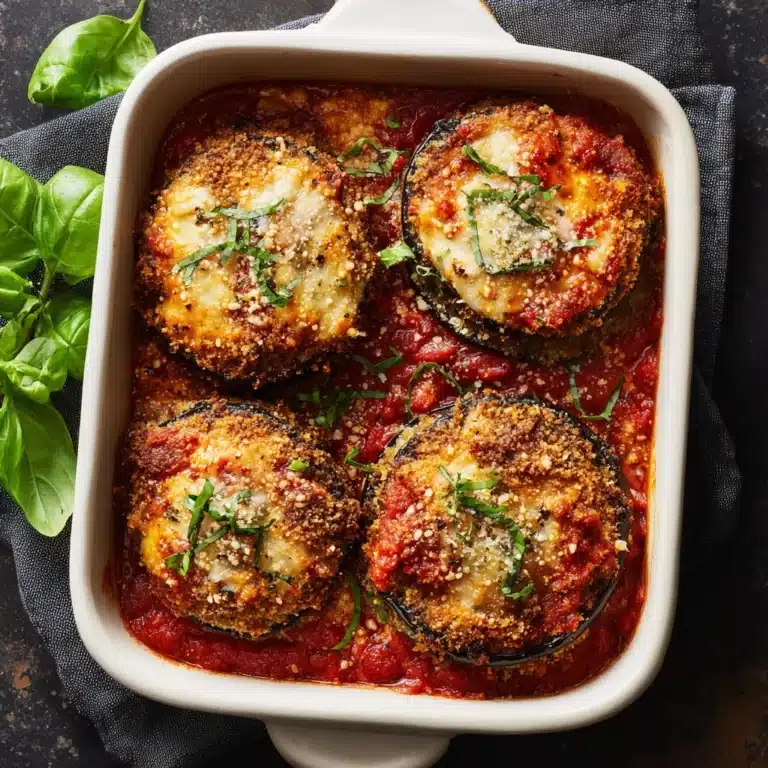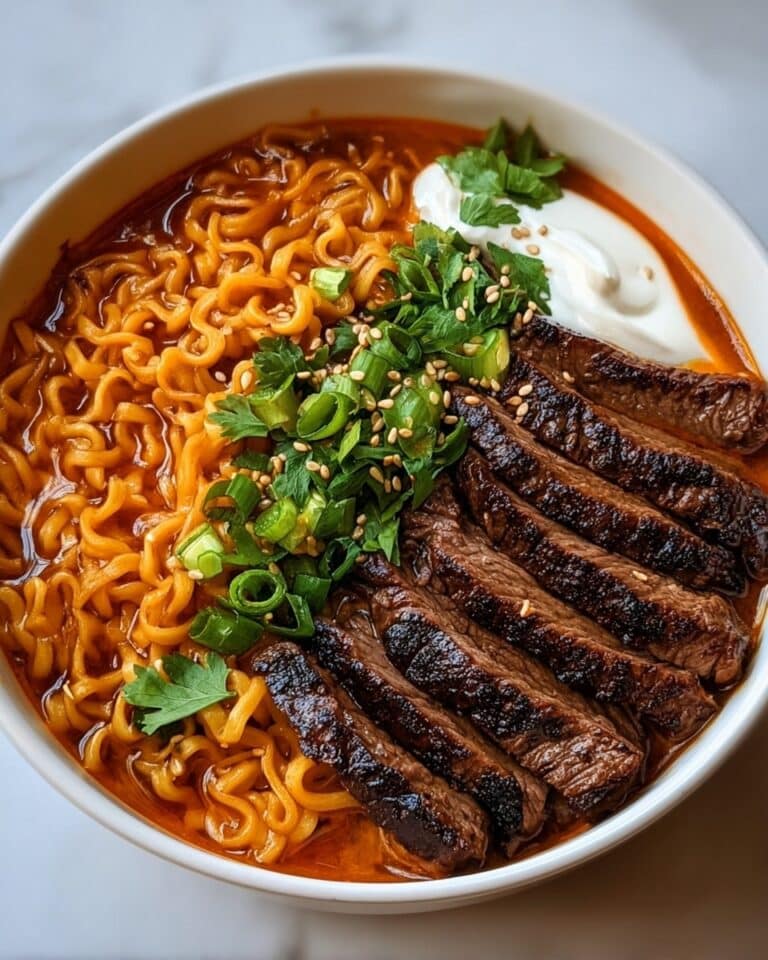If you’re searching for a breakfast that delivers pure comfort with a kick of flavor, Turkish Eggs will absolutely win your heart (and taste buds). Picture this: velvety, garlicky yogurt layered with perfectly poached eggs, all crowned with a drizzle of spiced red pepper butter—each bite is creamy, rich, and tingling with just the right amount of heat. This traditional Turkish dish, known as Çılbır, turns a handful of humble ingredients into a showstopper. Whether you enjoy it leisurely on a Sunday morning or whip it up for an impressive brunch, Turkish Eggs are the kind of meal you’ll want on repeat.

Ingredients You’ll Need
Don’t be fooled by the short ingredient list—each item brings something essential to the table, whether it’s tang, creaminess, or a touch of spice. It’s truly amazing how these simple pieces come together for such memorable flavor and texture.
- 2 large eggs: The star of the show—poached just until the yolks are gorgeously runny.
- 1 cup plain Greek yogurt (full-fat works best): Adds rich, tangy creaminess that balances the dish and forms the signature base.
- 1 clove garlic, finely grated or minced: For that savory aromatic kick; it subtly infuses the yogurt without overpowering.
- 1 tablespoon unsalted butter: Classic for that nutty richness in the spicy sauce.
- 1 teaspoon olive oil: Helps the butter emulsify and gives depth to the spiced drizzle.
- 1/2 teaspoon red pepper flakes (Aleppo pepper or chili flakes): Aleppo pepper is traditional and slightly smoky, but any chili flake brings lovely heat and color.
- Salt to taste: Brings all the flavors into balance; don’t be shy, but taste as you go.
- Chopped fresh dill or parsley for garnish (optional): A bright, herbal finishing touch that’s as pretty as it is tasty.
- Toasted crusty bread or pita for serving: Perfect for scooping up the yogurt and runny yolks—absolutely essential for the full experience.
How to Make Turkish Eggs
Step 1: Make the Garlicky Yogurt
This creamy base is what makes Turkish Eggs so irresistibly luscious. In a small bowl, mix the Greek yogurt with the finely grated garlic and a generous pinch of salt. Let it sit at room temperature for a few minutes; this takes away the yogurt’s chill and allows the flavors to bloom into something deeply savory and inviting.
Step 2: Poach the Eggs
Fill a medium saucepan with water and bring it just to a gentle simmer—no wild bubbling needed here. For a little help setting the whites, add a splash of vinegar (not required, but handy). Crack each egg into a small bowl, then gently slide them into the water one at a time. Poach for 3 to 4 minutes—you’re aiming for set whites and gloriously molten yolks. Carefully lift them out with a slotted spoon and let them drain on paper towels.
Step 3: Make the Spiced Butter Sauce
While the eggs are poaching, heat the unsalted butter and olive oil together in a small skillet over medium heat. Once the butter is melted and bubbling gently, toss in the red pepper flakes. Swirl for about 30 seconds—the moment it smells fragrant and inviting, take it off the heat. You’ve just made the iconic finishing touch for Turkish Eggs.
Step 4: Assemble and Serve
Time for the grand finale! Spread the garlicky yogurt across two plates or swirl it generously in a shallow bowl. Place the poached eggs right on top. Drizzle the warm, spiced butter sauce over the eggs, letting those streaks of red swirl through the cool white yogurt. A shower of fresh dill or parsley adds a burst of color and freshness. Serve right away, ideally with warm toasted bread or pita alongside for dipping and scooping every delectable bite.
How to Serve Turkish Eggs

Garnishes
Garnishes make Turkish Eggs not only more vibrant but also extra delicious. Fresh herbs like dill, parsley, or even mint add a spark of green and a fresh, aromatic note that brightens the whole dish. For something a little different, sprinkle a pinch of sumac or an extra shake of chili flakes just before serving. If you’re feeling bold, a little lemon zest can bring a citrusy surprise.
Side Dishes
Turkish Eggs shine brightest with a side of something perfect for dipping. Thick slices of rustic sourdough, toasted to golden perfection, or warm triangles of fluffy pita both work beautifully. For a true Turkish breakfast spread, add cucumber slices, tomatoes, olives, or even a handful of walnuts. They all offer crispy, juicy, or crunchy bites to balance out the creamy eggs and yogurt.
Creative Ways to Present
Don’t be afraid to get playful with your presentation! Serve Turkish Eggs in individual bowls for a personalized touch, or make it a dramatic centerpiece by arranging everything on a large platter for scooping and sharing. Use swirl patterns to mix the yogurt and butter sauce with a fork, or create a little well in the center of the yogurt for each egg to nestle into—your breakfast, your rules!
Make Ahead and Storage
Storing Leftovers
If you find yourself with extra Turkish Eggs (though that’s rare here!), store the components separately. Keep the garlicky yogurt in an airtight container in the refrigerator, where it will keep for up to two days. Poached eggs can also be refrigerated for a day—just be sure to cool them quickly in iced water so they don’t overcook before storing.
Freezing
While Turkish Eggs are best enjoyed fresh, you can freeze the yogurt mixture on its own if needed. The eggs and the spiced butter sauce, however, don’t handle freezing well—they tend to become rubbery or split after thawing. To save time, make a big batch of the yogurt mixture in advance and freeze in portions; thaw overnight in the fridge before using.
Reheating
To enjoy leftovers, gently reheat poached eggs by warming them in barely simmering water for about a minute. The yogurt base should be brought back to room temperature for best flavor and texture, and the butter sauce can be quickly rewarmed in a small skillet. Avoid microwave reheating, as it can make the eggs tough and the sauce greasy.
FAQs
Can I use regular yogurt instead of Greek yogurt for Turkish Eggs?
Absolutely! Regular plain yogurt works well, though the result will be a bit thinner and less creamy. If you want a consistency closer to Greek yogurt, you can strain regular yogurt through cheesecloth for a few hours before using it in your Turkish Eggs.
What’s the difference between Aleppo pepper and regular chili flakes?
Aleppo pepper is milder and slightly smoky, with a lovely fruity undertone. Regular chili flakes are usually hotter and more assertive. Either will add heat to your Turkish Eggs, so go with what you love (or what you have in the pantry)!
Can I make Turkish Eggs with fried or soft-boiled eggs instead?
You can certainly swap the poached eggs for a fried or soft-boiled version if you find poaching tricky. The main goal is to keep the yolks runny, so they mix beautifully with the yogurt and butter sauce—stick to your favorite egg style for a custom twist on Turkish Eggs.
Is there a vegan version of Turkish Eggs?
For a vegan take, try substituting the yogurt with a plant-based, unsweetened Greek-style yogurt, and use vegan butter for the sauce. Instead of eggs, some people enjoy silken tofu prepared in a similar way as the eggs, or just enjoy the yogurt and spicy butter as a dip with bread.
What’s the best bread to serve with Turkish Eggs?
The absolute best is thick slices of toasted sourdough or rustic country bread—something sturdy enough to scoop up all that yogurt and runny yolk. Pita is wonderful too, as are flatbreads. Whatever you love for dipping will make your Turkish Eggs breakfast unforgettable.
Final Thoughts
Turkish Eggs have that rare magic of being both wonderfully simple and unbelievably flavorful—no fancy skills required, just great ingredients and a little care. If you haven’t tried this classic yet, it’s time to treat yourself to the ultimate comfort breakfast. Whip it up for brunch, share it with friends, or savor it solo; either way, it’s bound to be the start of a delicious new ritual!
Print
Turkish Eggs Recipe
- Total Time: 15 minutes
- Yield: 2 servings 1x
- Diet: Vegetarian, Gluten-Free (without bread)
Description
Indulge in a delightful Turkish Eggs dish, also known as Çılbır, featuring perfectly poached eggs on garlicky Greek yogurt, topped with a spicy butter drizzle. This traditional Turkish breakfast is bursting with bold flavors and is a true comfort food.
Ingredients
Eggs:
- 2 large eggs
Yogurt Mixture:
- 1 cup plain Greek yogurt (full-fat works best)
- 1 clove garlic, finely grated or minced
- Salt to taste
Spicy Butter Drizzle:
- 1 tablespoon unsalted butter
- 1 teaspoon olive oil
- 1/2 teaspoon red pepper flakes (Aleppo pepper or chili flakes)
Additional:
- Chopped fresh dill or parsley for garnish (optional)
- Toasted crusty bread or pita for serving
Instructions
- Prepare Yogurt Mixture: Mix Greek yogurt with grated garlic and salt. Set aside to meld flavors.
- Poach Eggs: Simmer water, add vinegar, crack eggs into bowls, and poach for 3–4 minutes. Remove and drain.
- Make Spicy Butter: Heat butter and oil, add red pepper flakes, swirl until fragrant, then remove from heat.
- Assemble: Spread yogurt on plates, top with poached eggs, drizzle with spicy butter, and garnish with herbs. Serve with bread.
Notes
- This dish, known as Çılbır, is a traditional Turkish breakfast that’s both comforting and bold in flavor.
- For extra richness, use labneh instead of yogurt or sprinkle sumac for tang.
- Prep Time: 10 minutes
- Cook Time: 5 minutes
- Category: Breakfast
- Method: Stovetop
- Cuisine: Turkish
Nutrition
- Serving Size: 1 plate
- Calories: 290
- Sugar: 3g
- Sodium: 270mg
- Fat: 22g
- Saturated Fat: 9g
- Unsaturated Fat: 12g
- Trans Fat: 0g
- Carbohydrates: 6g
- Fiber: 0g
- Protein: 17g
- Cholesterol: 215mg







